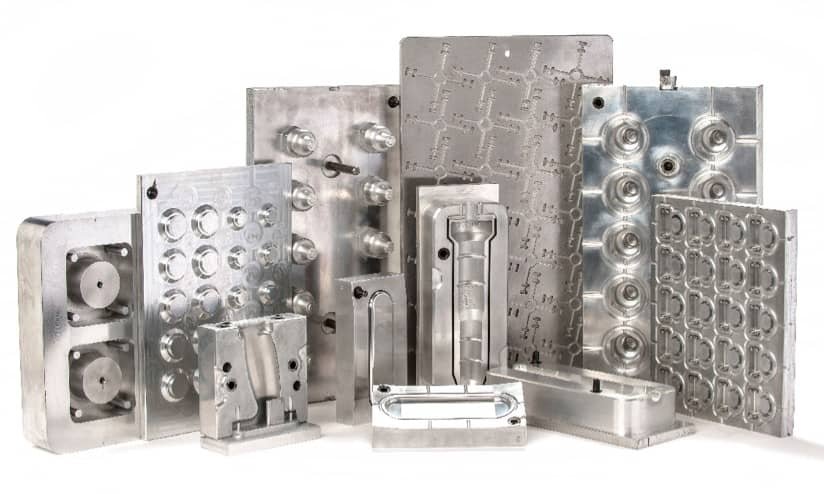As a manufacturer, you know the importance of efficient and cost-effective production processes. Custom mould manufacturing solutions can help you achieve both. By partnering with a trusted mould manufacture, you can streamline production, increase efficiency, and reduce costs. This article will explore the benefits of custom mould manufacturing and how it can help your business.
The Advantages of Custom Mould Manufacturing
Custom mould manufacturing offers a wide range of advantages for manufacturers. Here are some of the key benefits:
- Tailored to Your Specific Needs: Custom moulds are designed and manufactured to meet your unique production requirements, ensuring optimal performance and efficiency.
- Greater Precision and Consistency: Custom moulds are made with precision tools and techniques, resulting in higher quality and consistency of your products.
- Improved Production Efficiency: With custom moulds, you can optimize your production processes, reduce waste, and increase overall efficiency.
- Cost Savings: Custom moulds can be designed to minimize material waste, reduce cycle times, and decrease overall manufacturing costs.
- Competitive Edge: By leveraging custom moulds, you can differentiate yourself in the marketplace, offer unique product features, and meet customer demands.
Custom mould manufacturing is a powerful tool for manufacturers looking to optimize their production processes, reduce costs, and stay competitive in today’s market.
Designing Moulds for Your Specific Requirements
Designing moulds for your specific requirements is critical to the custom mould manufacturing process. You can achieve optimal performance, efficiency, and quality by designing a mould tailored to your needs. Here are some key considerations when designing moulds for your specific requirements:
- Material Selection: The choice of material for your mould will depend on the specific requirements of your production process, such as temperature, pressure, and wear resistance.
- Part Design: The mould design should be optimized for the specific part or product being produced, considering size, shape, and complexity.
- Tooling and Manufacturing Processes: The selection of tooling and manufacturing processes will depend on the material and part design and the required production volume and cycle times.
- Quality Control: Quality control measures should be incorporated into the mould design to ensure consistency and accuracy of the final product.
- Collaboration with the Mould Manufacturer: Working closely with your mould manufacturer throughout the design process is critical to ensure that the mould meets your requirements.
Overall, designing moulds for your specific requirements is an essential step in the custom mould manufacturing process. By carefully considering your material selection, part design, tooling and manufacturing processes, and quality control measures, you can create a mould optimized for your production needs.
Precision Manufacturing for Consistent Quality
Precision manufacturing is a key aspect of custom mould manufacturing that is essential for ensuring the consistent quality of the final product. Here are some of the ways precision manufacturing is used to achieve this:
- High-Quality Tooling: Custom moulds are made with high-quality tooling, including precision-cut steel and high-performance coatings, to ensure durability and accuracy.
- Advanced Machining Techniques: Precision manufacturing relies on advanced machining techniques such as computer numerical control (CNC) milling and electric discharge machining (EDM) to create precise and complex geometries.
- Tight Tolerances: Custom moulds are designed with tight tolerances to ensure consistency and accuracy of the final product.
- Quality Control Measures: Precision manufacturing incorporates quality control measures such as inspection and testing to ensure that each mould meets strict standards for accuracy and quality.
- Continuous Improvement: Custom mould manufacturers are committed to continuous improvement in precision manufacturing, using the latest technology and techniques to achieve the highest levels of precision and quality.
Precision manufacturing is critical for achieving consistent final product quality in custom mould manufacturing. By using high-quality tooling, advanced machining techniques, tight tolerances, quality control measures, and a commitment to continuous improvement, custom mould manufacturers can deliver moulds that meet the highest standards of accuracy and quality.
Cost Savings with Custom Moulds
Custom moulds can offer significant cost savings for manufacturers. Here are some of the ways that custom moulds can help reduce costs:
- Reduced Material Waste: Custom moulds can be designed to minimize material waste during production, resulting in significant cost savings over time.
- Faster Cycle Times: Custom moulds can be optimized for faster cycle times, reducing the time required to produce each part or product and increasing production efficiency.
- Lower Maintenance Costs: Custom moulds are made with high-quality tooling and materials, resulting in reduced maintenance costs over the life of the mould.
- Lower Energy Costs: Custom moulds can be designed to reduce energy consumption during production, resulting in lower energy costs over time.
- Improved Product Quality: Custom moulds can improve product quality, reducing the need for rework or scrap and saving costs associated with these activities.
- Reduced Labor Costs: Custom moulds can be optimized for faster production, reducing labor costs over time.
Custom moulds can offer significant cost savings for manufacturers by reducing material waste, cycle times, maintenance costs, energy costs, and labour costs and improving product quality. By partnering with a trusted mould manufacturer, you can achieve these cost savings and improve your bottom line.
Collaborating with Your Mould Manufacturer
Collaborating with your mould manufacturer is critical for achieving successful custom mould manufacturing. Here are some key considerations when collaborating with your mould manufacturer:
- Clearly Define Your Requirements: It is important to define your requirements for the mould, including material selection, part design, production volume, and quality control measures.
- Maintain Open Communication: Open communication is key to successful collaboration. Regularly communicate with your mould manufacturer to ensure that they understand your requirements and any changes that may arise.
- Provide Feedback: Provide feedback throughout the custom mould manufacturing process to ensure the mould meets your expectations and requirements.
- Utilize the Manufacturer’s Expertise: Your mould manufacturer has expertise in the custom mould manufacturing process. Utilize their expertise to ensure the mould is designed and manufactured to the highest standards.
- Plan for Future Needs: Work with your mould manufacturer to plan for future production needs, such as increasing production volume or incorporating new product features.
- Maintain a Long-Term Relationship: Custom mould manufacturing is an ongoing process. Maintain a long-term relationship with your mould manufacturer to ensure they can provide ongoing support and maintenance.
Collaborating with your mould manufacturer is essential for successful custom mould manufacturing. You can achieve optimal performance and quality from your custom moulds by clearly defining your requirements, maintaining open communication, providing feedback, utilizing the manufacturer’s expertise, planning for future needs, and maintaining a long-term relationship.
Full-Service Solutions from Concept to Delivery
Full-service solutions from concept to delivery offer manufacturers a comprehensive approach to custom mould manufacturing. Here are some of the ways that full-service solutions can benefit manufacturers:
- Concept Development: Full-service solutions can include concept development, helping manufacturers to refine their ideas and create a detailed plan for custom mould manufacturing.
- Design and Engineering: Full-service solutions can include design and engineering services, ensuring the custom mould is optimized for production efficiency, product quality, and durability.
- Tooling and Manufacturing: Full-service solutions can include tooling and manufacturing, utilizing advanced technology and techniques to create high-quality custom moulds.
- Quality Control: Full-service solutions can include rigorous quality control measures to ensure that each mould meets the highest standards of accuracy and quality.
- Logistics and Delivery: Full-service solutions can include logistics and delivery, ensuring that the custom mould is delivered on time and in optimal condition.
- After-Sales Support: Full-service solutions can include after-sales support, providing ongoing maintenance, repair, and replacement services as needed.
Overall, full-service solutions offer manufacturers a comprehensive approach to custom mould manufacturing, from concept development to delivery and after-sales support. By partnering with a full-service mould manufacturer, manufacturers can achieve optimal performance and quality from their custom moulds while reducing costs, increasing production efficiency, and improving their bottom line.
Streamlining Your Production with Custom Mould Manufacturing
Streamlining your production with custom mould manufacturing solutions can significantly benefit manufacturers. Here are some of the ways that custom mould manufacturing can streamline production:
- Optimized Production Efficiency: Custom moulds can be optimized for faster cycle times, reducing the time required to produce each part or product and increasing production efficiency.
- Consistent Product Quality: Custom moulds can improve product quality, reducing the need for rework or scrap and improving overall production efficiency.
- Reduced Material Waste: Custom moulds can be designed to minimize material waste during production, resulting in significant cost savings over time.
- Faster Time-to-Market: Custom moulds can be designed and manufactured faster than traditional moulds, reducing time-to-market for new products and increasing production efficiency.
- Flexibility: Custom moulds can be designed to accommodate changes in product design or production requirements, providing greater flexibility for manufacturers.
- Lower Costs: Custom moulds can offer significant cost savings for manufacturers through reduced material waste, faster cycle times, and improved product quality.
Overall, custom mould manufacturing can streamline production for manufacturers by optimizing production efficiency, improving product quality, reducing material waste, reducing time-to-market, increasing flexibility, and lowering costs. By partnering with a trusted mould manufacturer, manufacturers can achieve these benefits and improve their bottom line.







